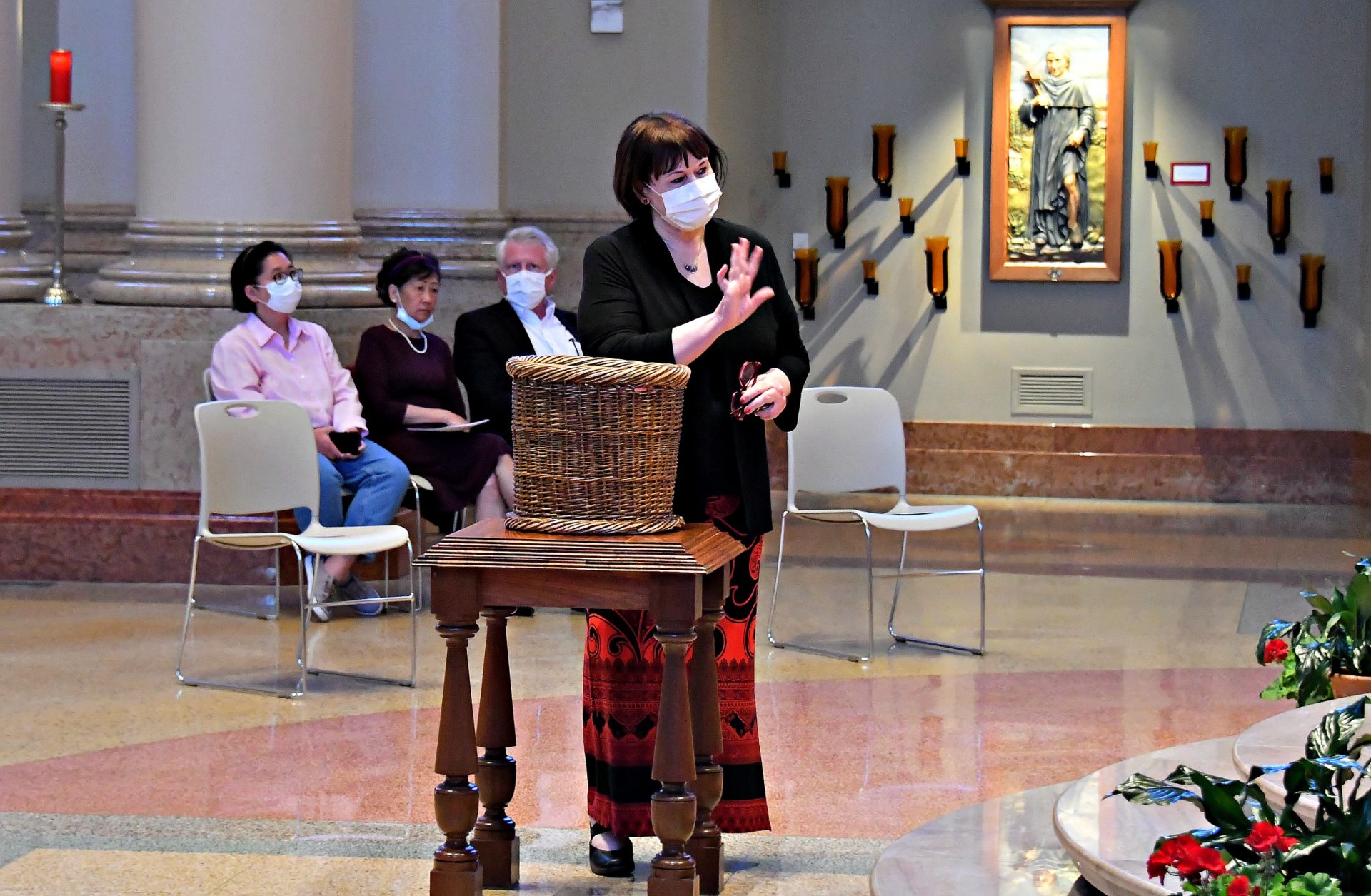COLLEEN JURKIEWICZ
CATHOLIC HERALD STAFF
Archbishop Jerome E. Listecki told reporters “It’s good to be back” outside the entrance to the Cathedral of St. John the Evangelist on the morning of Sunday, May 31, immediately following the 11 a.m. Mass. It was the first public Mass the archbishop had celebrated in the Cathedral since March, when he suspended public worship in the Archdiocese of Milwaukee to protect the faithful from the COVID-19 pandemic.
And certainly, the joy was written plainly on the archbishop’s face. Those who have watched him during these past 11 weeks, as he presided over Triduum services in an empty cathedral and ordained new priests in a sparsely attended Rite of Ordination, recognized the return of a characteristic vigor — that of a shepherd, reunited finally with his sheep.
“I could see the smile on a number of faces, even though they had masks — you could see their cheeks going up,” the archbishop told the reporters, referring to the congregation at the Mass. “It was a wonderful moment.”
The archbishop went on to discuss what he has learned during this crisis, and what the faithful themselves have been able to experience more keenly: the reality of the Church as the Body of Christ.
“We learned, one, how much we need one another — that’s really important. But number two, how much worship is a part of our lives,” he said. “When we’re denied that, suddenly we feel empty. We feel alone … if one thing is demonstrated by this pandemic, it’s how much we need God — and how much we need God to keep account of ourselves.”
He also acknowledged that weekend represented just the beginning of a very gradual return to the fullness of church life in southeastern Wisconsin — parishes were only allowed congregations that were equal to or less than 25 percent of their building capacity, and there were 16 churches on the south side of Milwaukee that were not allowed to hold Mass at all due to a heavy concentration of active COVID-19 cases in that area.
About 45 parishes in total throughout the archdiocese did not open, the archbishop told reporters. “We asked the pastors to open up only if you feel confident that you have the things necessary to ensure the safety of your congregants.”
In response to a question about widespread protests and civil unrest occurring throughout the country less than a week after the death of George Floyd in Minneapolis, the archbishop said that this was in fact the ideal time for Catholics to be able to unite as a community in prayer and worship.
It was also an event to which the archbishop had referred in his homily that morning. “The death of George Floyd needs a just response — but not in violence, which only hurts the very communities and issues that need our attention,” he said.
“When there are social ills within society, where do people go? They basically go to God,” the archbishop told reporters after Mass. “I’m a chaplain — military, U.S. Army — and I can tell you this, there are no atheists in foxholes. When all of a sudden everything seems to fall around you, our hands open up — ‘God, God, where are you?’ The Church coming together helps us to get that sense of assurance and that confidence. What we’re going through in our own society, the division that is there, we need the Church to help bring us together.”
Strengthening the commitment
Speaking with the Catholic Herald after the press conference, the archbishop expressed great personal joy at being able to say Mass before a congregation again.
“It was a wonderful feeling. It was a great feeling,” he said. “It was a strengthening, if you want, of our commitment. When I saw people coming in, I thought, ‘They’re taking the risk — but the risk is worth it.’”
When asked if he foresees an eventual return to the more familiar way of praying the Mass to which most Catholics are accustomed — sans face masks, social distancing and the myriad regulations to ensure health and safety, he said: “I do. And we’ll do whatever is necessary to help preserve both our worship and preserve the safety of our people.”
“I’m an American,” he continued. “So I believe in American ingenuity. I believe there are people already working on a vaccine for this coronavirus. One of the things about Americans is they love being in a race. They want to be the first ones to discover that.”
In terms of how severe this particular crisis is, when compared to the other issues he has dealt with during his episcopacy in Milwaukee, the archbishop said, “You don’t get to pick your battles.”
“They kind of confront you,” he said. “But the one thing you do is you’re able to build on the sense of family, the togetherness, and when you go through a crisis you see how important those relationships are. Relationship to God, relationship to family, relationship to friends, relationship to our country. I’ve got to believe, as a spiritual leader, we’ve just become stronger. We do it together, we clasp our arms and we take on whatever our challenges are, and hopefully God will help us be better for it.”
